What operation is done when there is a power of a power (power raised to a power)
What is multiplication
State the leading coefficient of the polynomial:
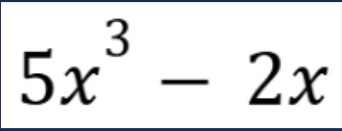
What is 5.
What two terms determine the end behavior of the function and the range of the function?
What is degree and leading coefficient
How many roots are in the following polynomial equation. 
What is 3.
This is the definition for what term, the largest number that is a factor of all the numbers
Greatest Common Factor
What operation occurs when you are dividing exponents?
What is subtracting the powers
Which functions have at least one real zero.
What is odd degree functions.
State the end behavior of the polynomial: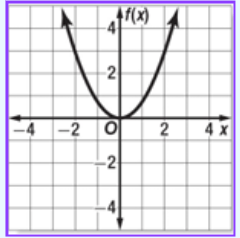
What is positive infinity in both directions of f(x) with respect to x.
True or False
Every polynomial equation with degree greater than zero has at least two roots in the set of complex numbers
What is False, every polynomial equation with degree greater than zero has at least one root in the set of complex numbers.
This  is known as.
is known as.
Sum of Two Cubes
What is the answer if a term is raised to the zero power
What is 1.
Which functions may have any number of real zeros or no real zeros at all.
What is even degree functions
State the end behavior of the polynomial: 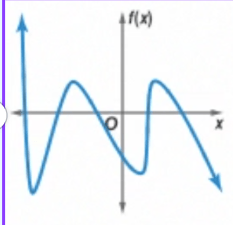
What is as x approaches negative infinity f(x) approaches positive infinity, and x approaches positive infinity, f(x) approaches negative infinity.
State the number zeros of the polynomial: 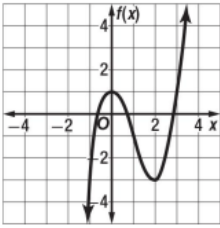
What is 3.
This is known as when we need to factor with 4 or more terms.
What is grouping?
When dividing polynomials, what form do they need to be in?
Standard Form - Make sure the exponents are in descending order
If a function has a degree of zero what is the function known as.
What is a constant function.
State the end behavior of the polynomial:
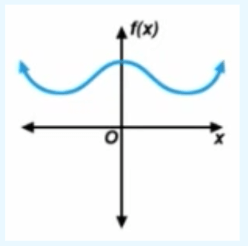
What is as x approaches either direction f(x) approaches positive infinity.
State the number of zeros of the polynomial.
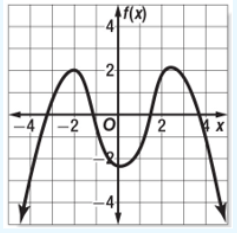
What is 4
When you have two terms with a difference of cubes this is the formula in factored form.
What is 
State the degree of this polynomial

It is not a polynomial.
What are the terms of a polynomial separated by?
What is addition and subtraction signs.
State the end behavior of the polynomial:
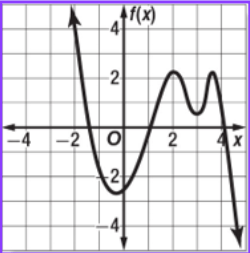
What is as x approaches negative infinity f(x) approaches positive infinity, and x approaches positive infinity, f(x) approaches negative infinity.
Determine the number and types of roots for the following 
What are 2 imaginary (plus or minus 2i) and 2 real (plus or minus 2).
This is the factored form of a difference of two squares.
What is 